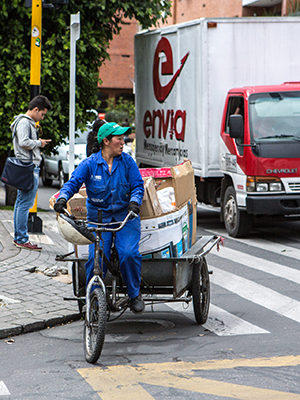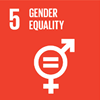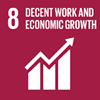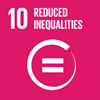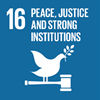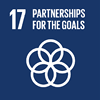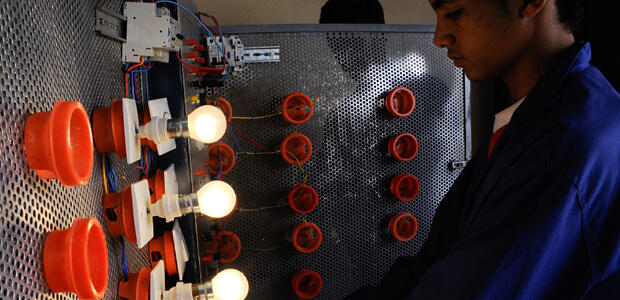Transforming economies, states, and societies
At its core, development is about the well-being of people. But it is also about creating societies which provide fundamental rights and just social political outcomes. Sustainable and inclusive development requires transformative changes across three fundamental areas: in the structures of economies, in the state, and institutions that govern social and market interactions and broader developmental processes, and in society itself. These transformations are central to the achievement of the United Nations’ 2030 Agenda for Sustainable Development and the Sustainable Development Goals (SDGs).
The 2019–23 UNU-WIDER work programme focuses on the interlinked development challenges of transforming economies, states, and societies and maps them against SDGs 5, 8, 10, 16, 17. By mobilizing research evidence for action through the ongoing processes in the UN and its member states, the institute continues to work with stakeholders to strengthen capacities for research, technical, and policy analysis, and facilitate exchange of experiences and knowledge towards bold and collaborative development solutions for countries and regions around the world.
Click on the table below to explore our current work or scroll down to search past projects.
6 active and previous projects
Filter by...
2012-13
Conference on inclusive growth in Africa - measurement, causes, and consequencesapid and sustained poverty reduction requires ‘inclusive growth’ that allows people to contribute to and benefit from the development process. Africa’s economic performance has improved considerably since the 1980s and early 1990s. Nevertheless, many...
2012-13
Experimental and non-experimental methods to study government performance: contributions and limitsIn recent years, field experiments using randomized trials have gained increasing popularity in the field of development economics. In particular, scholars have argued strongly for their use as the best means of identifying ‘what works’ in foreign...
2012-13
Africa's emerging middle-classSub-Saharan Africa currently is facing a range of demographic and socioeconomic shifts that hold important implications for both the region’s economic and political development. One of these shifts has been the emergence of a sizeable and dynamic...
2012-13
Reconciling Africa’s growth, poverty and inequality trends: growth and poverty project (GAPP)Despite decades of research and advances in data and methods, measuring poverty and reconciling this with patterns of economic growth remains a complex and contentious issue. UNU-WIDER’s Growth and Poverty Project (GAPP) re-examines Africa’s growth...
2012-13
Building state capability through Problem-Driven Iterative Adaptation (PDIA)As a sub-component of the Research and Communication on Foreign Aid (ReCom) programme, the PDIA project feeds into the themes: governance and fragility & social sectors. An integral part of development is the expansion of capability of the state to...
 Join the network
Join the network